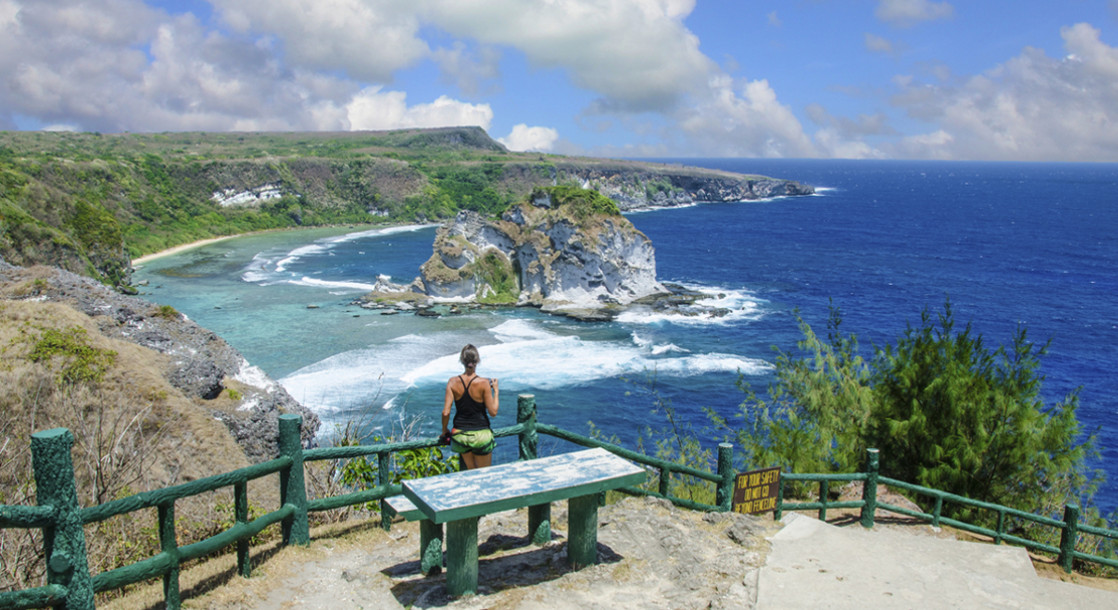Bird Island Overlook in Saipan, Northern Mariana Islands
A small chain of 15 islands in the northwestern Pacific may soon be getting a massive influx of tourism — if their governor signs a new bill to legalize recreational cannabis, that is. This week, lawmakers in the Commonwealth of the Northern Mariana Islands (CNMI), a territory of the United States, passed the final version of a bill to create an taxed and regulated adult-use market. A similar bill was approved in May, but killed over procedural concerns. Legislators were unwilling to let the issue drop, however, and quickly proposed a new version of the bill that resolved these issues this summer.
CNMI lawmakers have been proposing legalization bills almost annually since 2010, the cause has picked up critical momentum this year. Earlier this month, the territory's House of Representatives approved the bill by an 18 to 1 vote, with one abstention. This week, the CNMI Senate approved the bill within six minutes, by a 6 to 2 vote with two abstentions. The bill now moves to the desk of Gov. Ralph Deleon Guerrero Torres, who has 28 days to sign or veto the legislation.
Although support for legalization is strong among the territory's lawmakers, Torres has expressed concerns, and suggested that he may ask government officials to review the legislation before he signs it. If the governor does sign the bill, the CNMI will become the first U.S. territory to legalize weed, as well as the first American locality to create an adult-use market through an act of legislation, rather than by a voter-approved measure. Vermont lawmakers also legalized cannabis via through their legislature, but marijuana sales remain illegal in the Green Mountain State.
“We commend the lawmakers for taking this important step forward, and we hope Gov. Torres will join them in supporting a more sensible marijuana policy for the Northern Marianas,” Gerry Hemley, co-founder of advocacy group Sensible CNMI, said in a statement. “This is an opportunity for the commonwealth to establish itself as a trendsetter on this issue and set an example for the states and other U.S. territories. This legislation will replace the illegal marijuana market with a system of regulated, taxpaying businesses. It will not only bolster our economy, but also improve public health and make our community safer.”
The bill will allow adults 21 and over to possess up to one ounce of cannabis flower, 16 solid ounces or 72 liquid ounces of cannabis-infused products, and up to five grams of extracts. Sales of these products will be taxed and regulated by the territory, which will create a cannabis commission to regulate and license the industry. Adults will be allowed to grow up to six mature and 12 immature cannabis plants, but only if they sign onto a Homegrown Marijuana Registry.
“This is a historic moment, as it is the first time a governing body in the U.S. has ever enacted legislation to both end marijuana prohibition and establish a system of regulation to replace it,” Karen O'Keefe, director of state policies for the Marijuana Policy Project, said in a statement. “Adults and medical cannabis patients will finally be able to access marijuana safely and legally, and products will be regulated and controlled to ensure they are safe for consumers. This legislation will allow for the establishment of new businesses that create jobs and generate new tax revenue that can support important programs and services.”











